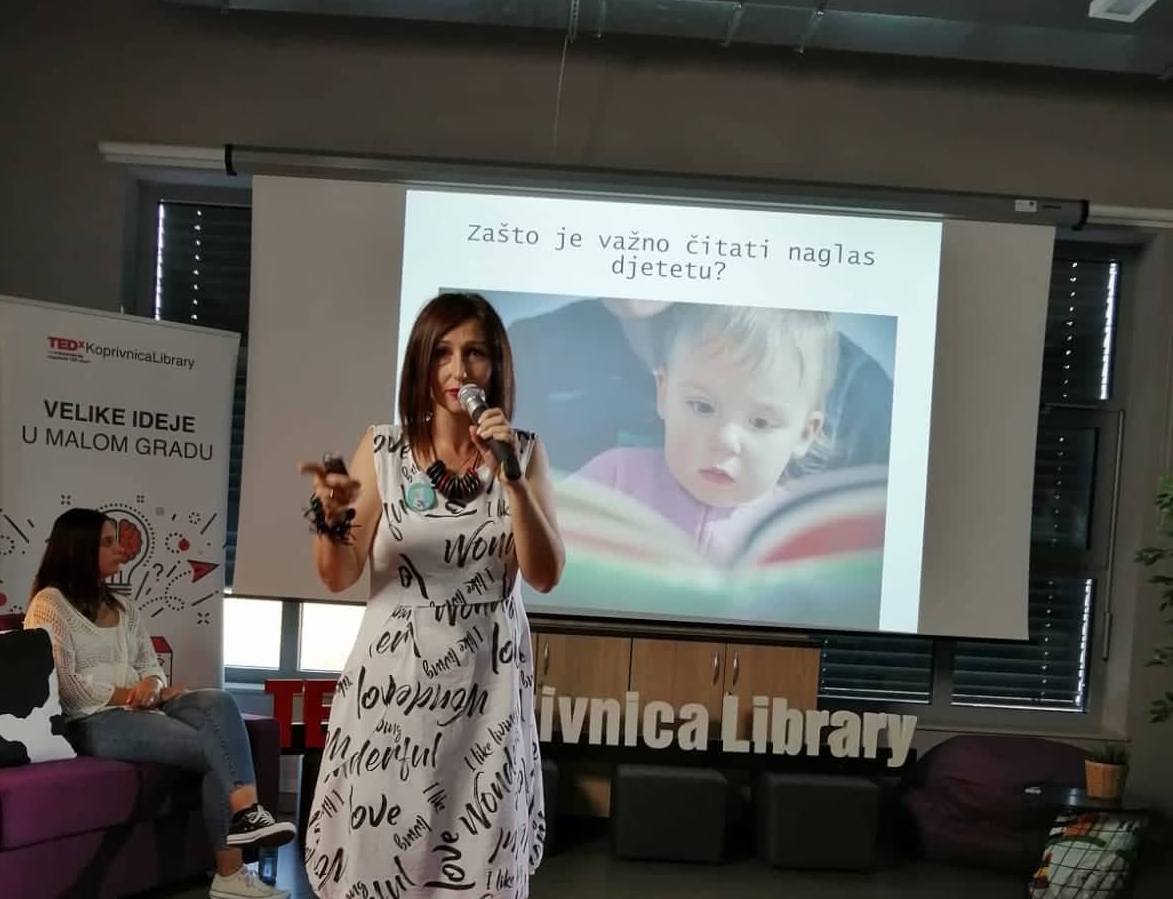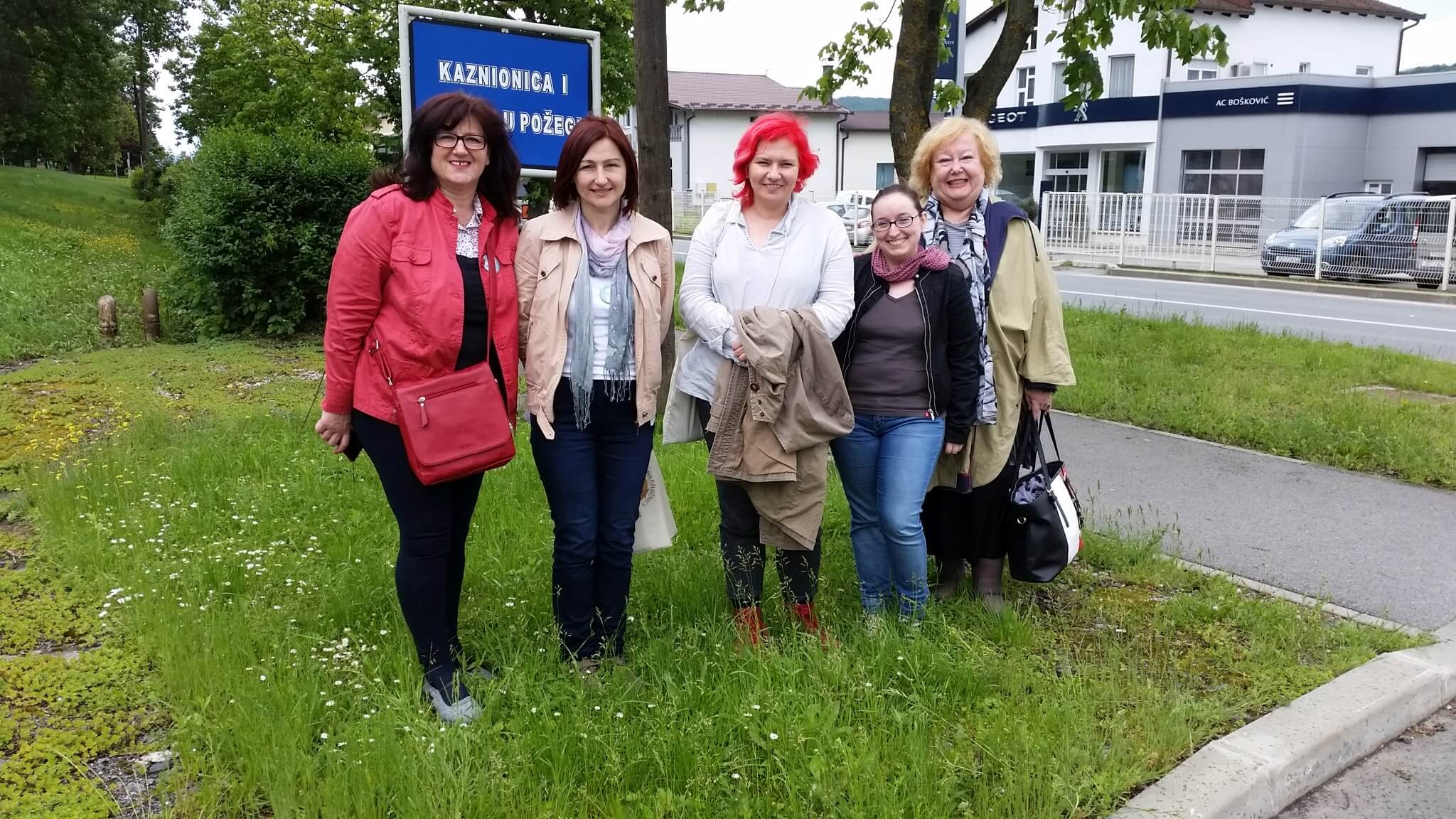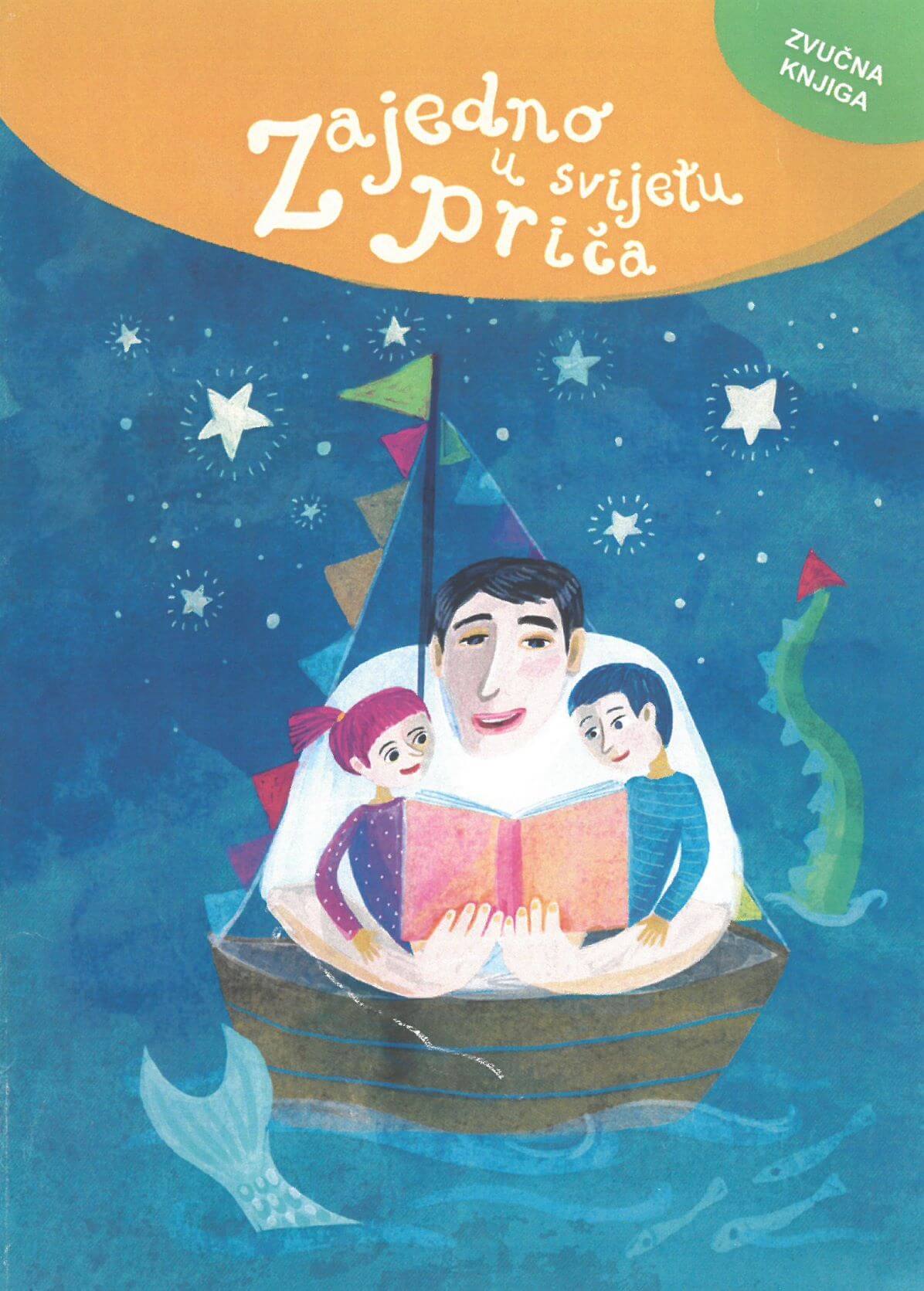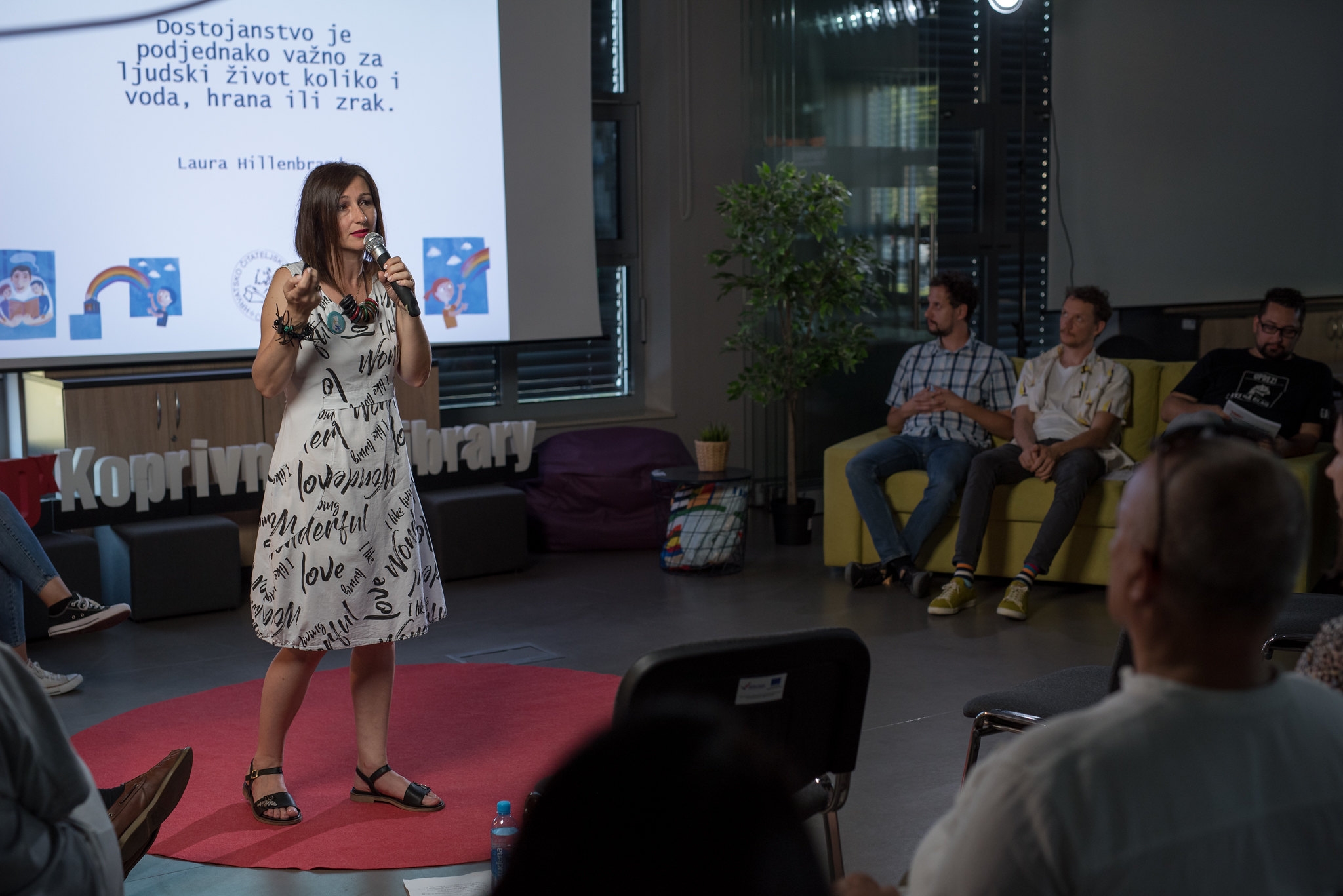PM: Allowances For Parents With Children With Special Needs To Be Increased
ZAGREB, 10 June 2022 - Prime Minister Andrej Plenković said on Friday that the government would try and secure budget funds to increase allowances for parents with children with special needs, with whose representatives he would meet next week.
"We... will meet with the parents' representatives on Monday and find a solution to meet their demands. We are yet to see what the effect on the budget will be," the PM said, adding that there were around 5,100 children with special needs.
He recalled that his government had already made major changes by increasing maternity allowances.
Sjena association vice-president Suzana Rešetar said the prime minister's invitation to talks came after the association said it would stage a protest outside the Social Policy Ministry in early September.
Topics other than the allowance, which currently amounts to less than HRK 2,400, could be opened at the talks as well, she said.
"We do not want to be charity cases that depend on the allowance. We want adequate social services for our children, such as lessons with speech specialists or psychologists paid for by the state as well as medicines and medical devices," Rešetar told Hina, noting that currently those services are paid for fully or up to 50% by parents, which many have problem coping with financially.
In addition to quality health services, parents of children with special needs also want the state to secure adequate education for all such children, which would make them more competitive on the labour market and reduce their dependence on the state allowance.
"We even have problems when enrolling children in primary schools," Rešetar said, adding that parents were frequently told that schools did not have the conditions or capacity to organise classes for children with special needs.
She noted that an additional problem was that the state treated all parents of children with special needs the same, without taking into account the total number of children they have, the number of children with special needs or disabilities, their housing conditions, working conditions, etc.
"If you have a sick child, the state removes you from the labour market and pushes you into extreme poverty, it does not support motherhood at all," said Rešetar.
For more, check out our politics section.
Zagreb Deputy Mayor Danijela Dolenec: Applications For Stay-at-Home Parent Grants to be Suspended in September
ZAGREB, 17 Aug, 2021 - Zagreb Deputy Mayor Danijela Dolenec said on Tuesday that after a public consultation, the city would not change the proposed decision to suspend applications for grants for stay-at-home parents from 6 September until an evaluation of the scheme.
"We are aware that it is difficult to set a deadline, there isn't necessarily a happy solution. It's important to stop applications from new beneficiaries until the scheme undergoes a comprehensive evaluation," Dolenec told a press conference.
She said that 48 proposals had been submitted in the public consultation and some of them propose that the deadline be extended.
"An extension of up to a year, until 2024, has even been requested," said Dolenec, adding that the City of Zagreb would propose to the Assembly that a temporary moratorium be introduced as of 6 September.
The association 3Plus Families, which brings together families with three or more children recently called for extending the deadline for applying for monthly grants for stay-at-home parents until 31 May 2022, urging the City of Zagreb not to give up on that demographic measure until it is introduced nationwide.
For more about politics in Croatia, follow TCN's dedicated page.
Daddyhood Dadathlon Starts Today for All Fathers Around the World!
April 17, 2021 - Daddyhood Dadathlon is a celebration of the movement to create more opportunities for fathers to spend active time with their children.
Three major events will be held this year to promote an active role of parents with their children, thus sharing moments that will last in the memory of both. Daddyhood Dadathlon is a sports event created to inspire dads and kids of all ages to do a physical activity together.
The event has been organized by Daddyhood Europe, a non-profit foundation that seeks to break with the historical stereotypes created regarding the role of parents with their children.

Daddyhood Europe website
This year Daddyhood Dadathlon races will take place in three stages:
- April 17th to 24th: Running with kids (strollers allowed)
- June 20th to 27th: Cycling with kids (bike trailers or a child seat allowed)
- September 19th to 26th: Trekking with kids (carrier backpack allowed)
The 2021 Daddyhood Dadathlon edition will be held virtually and to allow flexibility to participants, each event will be open for participation during one whole week.
The races are conceived for individual teams (one father with his child/ren). It is possible to team up with other fathers and their children, to motivate each other and have even more fun, but each team member will have to complete the full distance of the race.
Participants can choose to take part in only one or two races, but to complete the full Daddyhood Dadathlon, they will need to compete in all three races/disciplines.

Daddyhood Europe website
Daddyhood Dadathlon consists of three different distance levels at which participants can compete, depending on their capabilities and ambitions:
- Bronze level – Running 3k, cycling 7k, hiking 2k
- Silver level – Running 7k, cycling 15k, hiking 5k
- Gold level – Running 15k, cycling 30k, hiking 10k
The main goal of Daddyhood Dadathlon is to complete the chosen level in each of the races while bonding and having fun. There will be a leader board available to track the times but the prizes will be awarded to the team who will make the most attractive and most inspiring pictures or videos and post them online, tagging @daddyhoodeurope #DaddyHoodDadathlon.
If you want to register and find more information about this year's races, you might do so on the Daddyhood Dadathlon site. You can also sign up and find more about the prizes on RaceID.
For more about lifestyle in Croatia, visit our dedicated TCN page.
Inmates Can Read to Their Children Thanks to RODA, HČD and Kristina Čunović
July 30, 2020 - Sociologist Kristina Čunović made inmates' dreams come true - those who didn't even know they existed. Thanks to the RODA, The Croatian Reading Association and Čunović, inmates now have a special connection with their children through reading.
Inmates are, without any doubt, a marginalized group of society. But that doesn't mean they stopped being parents at the moment they entered prison. Kristina Čunović, sociologist and senior librarian advisor, let this thought lead her on her mission.
In the Republic of Croatia, about 12,500 children a year have one or both parents in prison. These children are invisible to the community, vulnerable, almost all are indirect victims of their parents' actions. Most people will be horrified when they hear this information but will do nothing about it. “But activists, human rights activists have a ‘life impulse’ to initiate change in problem areas; they cannot sleep peacefully, and they need to change the world for the better. I am among those activists myself. I was only able to connect the children and parents of the inmates from the area where I work, about which I know, and that is to encourage reading and literacy,” said Kristina.

The reading program includes the following: inmates receive picture books and books adapted to the age of the children. The books are selected by experts from The Croatian Reading Association. Inmates choose a book, read the story to their child, and prison staff help to record the story and send the recording to the child. Thus the child has the opportunity to listen to his mother or father whenever he wants to.
By listening to a recording and flipping through a book or picture book, the child develops listening skills, imagination, attention retention exercises, and enriches vocabulary. At least as important is connecting parents and children through moments of reading and listening to stories, despite the barriers that divide them.
“In the intimate and magical moment of sharing a beautiful story, through the ‘sound book’ they receive from their parents, the child gets the opportunity to have the parent prisoner with them, and the parent - to give the child a part of themselves,” said Kristina.
This program supports the national campaign to encourage children to read aloud, "Read to me!", which she initiated seven years ago.
The project was first started by members of the association RODA (Parents in Action) with mothers in prison. In Croatia, not all inmates are in the same position concerning the possibility of visiting family members. Although it is recommended that inmates with families be placed in prisons closest to their children's residence, female inmates are at a much more significant disadvantage than males. Women sentenced to more than six months in prison can serve their sentences only in the Požega Penitentiary. Given its geographical location, poor transport links, and the socioeconomic status of these families, their children are usually unable to visit regularly. Maintaining these relationships between the parent who is in prison and the child is necessary for a balanced upbringing and overcoming the child's developmental crises. The key question was how to connect the parents of the inmates and their children. The reading program developed with mothers at the Požega Penitentiary has been recognized as a quality model that has been extended to fathers, thus strengthening their parental role.

Reading programs that connect inmates and their children in the world exist, but Croatian is special because it is implemented in all penitentiaries and prisons in the Republic of Croatia (2015-2019). It received continuous financial support from ministries (up to 2019), and children's librarians prepared a recommended list of quality children's books. The program was also recognized by the international professional community as special and received the Award for Innovative Promotion of Reading in Europe for 2017, awarded by the world's largest organization for the promotion of literacy ILA - International Literacy Association.
Until 2014, there was almost no support program for parents of inmates and their children. Members of the RODA association and their executive director Ivana Zanza were the first to start the program with their mothers. Then later, members of The Croatian Reading Association joined the program with their fathers - Kristina as the president of CroRA from 2014 to 2016, mag. bibl. Snježana Berak as vice-president of CroRA (current president) and mr. sc. Ljiljana Sabljak, bibliotherapist.
Since 2016, RODA, in partnership with The Croatian Reading Association, has been developing a reading program in three penitentiaries - Penitentiary and Prison in Požega, Penitentiaries in Glina and Lepoglava (with funds from the Ministry of Social Policy and Youth), and at the end of 2016 in Zagreb Prison (funds of the City of Zagreb). By the end of 2019, the program took place in all prisons in Croatia (funded by the Ministry of Justice). “We were surprised by such a large turnout of parents, especially those who have difficulty reading, but we encouraged them to retell the picture book to their child,” said Kristina. About 2,400 books with appropriate envelopes, CDs, and postage stamps were available to inmates in the program. Everything in this program for inmates was free, and about 600 inmates participated, some even sending their footage and book to a child a couple of times.

"It would be dishonest to say that we did not encounter any minor obstacles and that all the principals reluctantly accepted the reading program. However, all obstacles have been addressed by the Ministry of Justice by building links between civil society organizations and the prison system, and we are grateful to them for that," said Kristina. Over time, all principals have realized that the reading program has a preventive role toward inmates who are parents. A prisoner who has managed to maintain (or develop) a close relationship with a child while serving a prison sentence is at a lower risk of recidivism after release. Also, the program has a preventive role towards the child, the end-user of the program: children who are in close and quality contact with a prisoner parent are at lower risk of developing undesirable behaviors, are less stressed due to parental separation and imprisonment, and parent reading and listening to the development of his reading skills, and helps them to later succeed during their schooling. Thus, the reading program contributes to the rehabilitation of the whole family. It has a very positive effect on the behavior of inmates. The program strengthens parental competencies and develops positive parenting of both the inmate parent and their family, especially the positive father's role.
Some inmates initially refused to participate. That changed quickly thanks to the positive comments of other inmates who got involved, but also thanks to the great engagement of the prison staff. Namely, some inmates recorded the reading three or more times (until they were completely satisfied), and the prison staff had patience. A quiet corner in prisons is hard to find; reading is disturbed by noise, a bell, but neither the staff nor the inmates did not give up (as they pointed out).
“They gave me the most valuable thing: even in prison, you can be a man and a father.” (c. father, a prisoner from the Glina Penitentiary)
Father inmates who participated in the reading program are extremely satisfied, and this fact is confirmed by the high percentage of assessment of the probability of re-participation (94% of fathers) and willingness to buy books at their expense (91% of fathers). Almost all fathers also provided supportive feedback regarding positive changes in their relationship with their children. Some inmates did not have any contact with the children, so after sending the picture book and CD, their (ex) partners reacted very well, and now the inmates have telephone contact with the children once a week.

Parents chose the books carefully, prepared in detail for filming, and asked prison staff to record them as soon as possible. Inside the CD/DVD cover, space has been prepared for the father's message to the child, written in his handwriting. Dad can also write messages on the cover of a book/picture book. The family letter encourages them to see if the dad has written the message and to show it to the child. "Upon receiving feedback, the inmates immediately came to the prison staff to inform them and convey the positive reactions of the children and other family members," said Kristina.
Prison staff points out that the inmates involved in this program are much more open in revealing their emotions, bringing them poetry and stories they write about their families. In their opinion, this is solely the result of this program. They are much more eloquent. Almost all were interested in the further implementation of the program, the possibility of procuring new books and educational materials, and some inmates interested in other parenting programs in the prison.
“One father told us that he sent his teenage girl a picture book for babies because there was no choice of books for teenagers in prison. But his daughter's reaction was great; she was delighted with dad's reading, and she didn't know that ‘dad read so well’. She also played a CD with a recording of dad's voice to her friends. It is wonderful to hear that children without fear can talk to friends about their experience of visiting a parent in prison and believe that they will not be stigmatized or ridiculed by other children or adults. We believe that our reading program also helped empower the children and parents of the inmates,” said Kristina.
Her main message on TEDx talk was that we could all include our potentials and knowledge to solve some problems in Croatian society and develop our community in a more humane direction. “But raising citizens' awareness and sensitizing to some social issues and focusing on the right solutions is a slow process; one should be prepared that things will not change overnight and that sometimes changes take years, but one should not give up,” Kristina said.
It was not clear to some friends and colleagues why it was important for her to participate in a reading program for inmates and their children. They even advise her to give up. “The point is that by serving their sentences, inmates did not stop being parents, did not lose the right to make decisions important to their child's care, nor did their relationship with the child become less important. In working with inmates, I primarily viewed them as parents who wanted to stay connected to their children through reading. After reading the touching evaluations of the families who participated in the reading program, there was no doubt that I was doing a good thing for the inmates, their families, and the prison system,” said Kristina.
Inmates who maintain contact with their families while serving their sentences find it easier to accept life in prison and life in the outside world after serving their sentences. Kristina ended her TEDx speech with a saying from a writer who says that dignity is as important to human life as water, food, or air. “My answer is always that by participating in this program, I want to contribute to the inmates and their families to be dignifiedly connected through reading activities. Also, through the book, children enjoy the world of imagination and daydreaming with a story-mediated meeting with a parent.”


